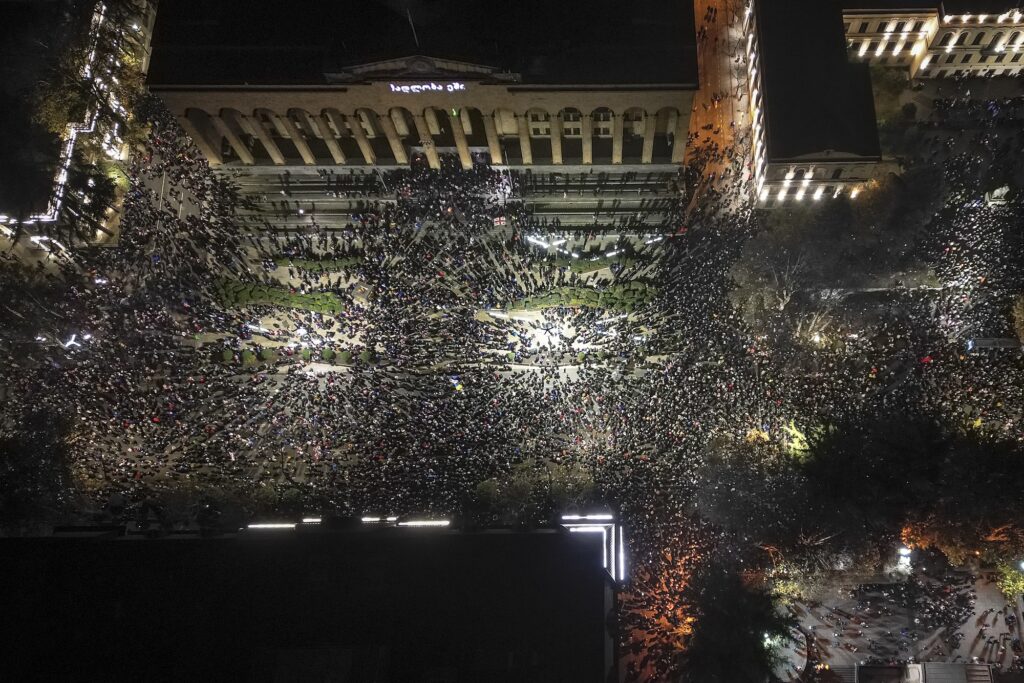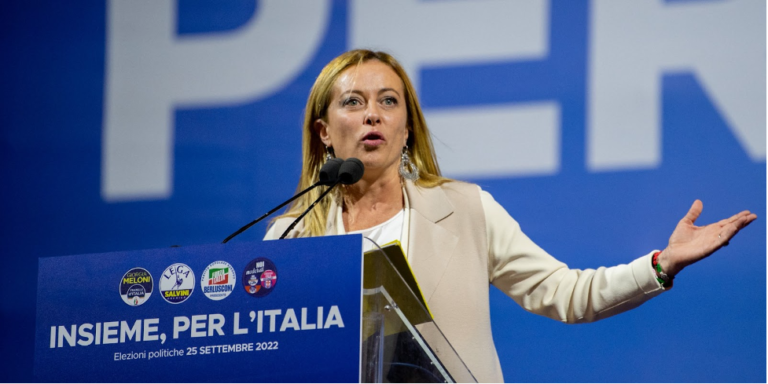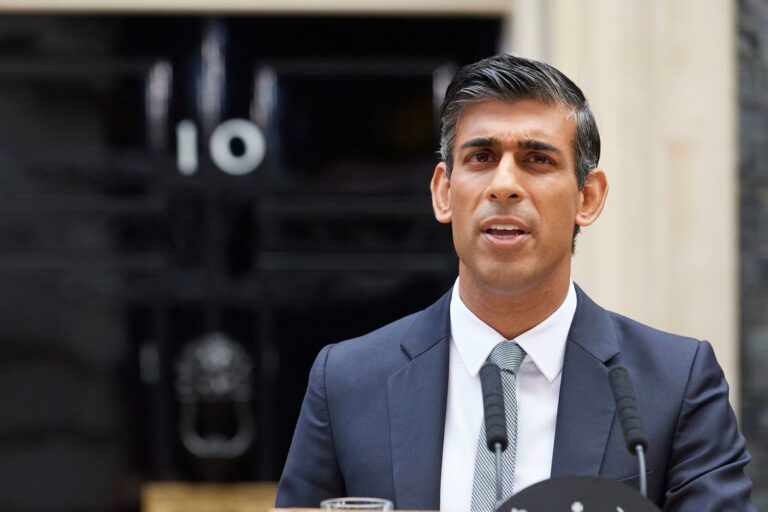
A little over ten years ago, a Kremlin-backed Ukrainian president ended the country’s hopes of joining the E.U., and Kyiv became a battleground: on one side, a protest against authoritarianism and Russification, and on the other, a violent police force protecting the regime.
Scenes in Tbilisi, the capital of Georgia, have been much the same. For nearly a week, tens of thousands of protesters throwing stones and setting off fireworks around the parliament building have been beaten and tear-gassed by the police. More than 100 protestors have been arrested and at least 40 hospitalized. This is not a one-week ordeal: tensions have been building for years.
In 1991, Georgia declared independence from the Soviet Union, and its new constitution codified the country’s intent to eventually join the European Union. Relations with Russia naturally deteriorated: in 2008, Georgia’s attempts to remove itself from Russia’s sphere of influence turned into a five-day war. Russia won, and Georgia severed all diplomatic ties between the two countries.
Georgians came out of the experience wary of Russian influence and increasingly supportive of accession to the E.U. Today, nearly 80 percent of Georgians support joining the bloc.
Fears became more pronounced when Georgian Dream, the political party in power since 2012, began to shift in an authoritarian direction. In the last year, the state has embraced legislation that echoes Kremlin methods of cracking down on peoples’ freedoms. The country’s opposition began to worry that an increasingly authoritarian and pro-Russian government would ultimately end any chance of E.U. membership.
When parliamentary elections were held in October, Georgians were not just choosing between an incumbent or opposition-led Parliament, but also between Russian or Western spheres of influence. Georgian Dream, whose campaign focused on a conspiracy theory about a “global war party” controlling Western institutions and aiming to drag Georgia into the Russo-Ukraine war, won a majority of the popular vote. The people, it seemed, had chosen Russia.
But, the opposition was not so sure. Accounts of violence at polling stations, voter intimidation, and alleged ballot-stuffing led many opposition leaders to declare the results falsified and the election stolen. Soon after, the European Parliament rejected the results as well. Georgian Prime Minister Irakli Kobakhidze swiftly responded by suspending Georgian negotiations with the E.U. for four years and refusing any European budgetary grants on the basis that the E.U. was using negotiations to blackmail and organize a revolution. Russian President Putin praised the decision within minutes.
Protestors took to the streets, unconvinced by Kobakhidze’s assertions that Georgian Dream still intends to join the E.U. despite delayed negotiations and promises that it is unaffiliated with the Russian government. Kobakhidze has, in effect, confirmed their fears that Georgia is slipping back into a Russian sphere of influence and reverting the country’s progress towards the democracy necessary for joining the E.U.
However, this is not the only factor darkening Georgia’s future. The U.S. also suspended its partnership with Georgia in condemnation of the decision to suspend E.U. accession, indicating that Georgia is becoming increasingly alienated from the West.
Given that Georgian Dream came to power using conspiracy theories about Western plots against Georgia, the implications of this are grim. The party can use the suspended partnership as evidence confirming their claims of a menacing West. This may allow Georgian Dream to justify an even more blatant repression of the people on the basis of preventing Western intervention and a further turn towards a relatively “friendly” Russia. Observers have noted that, unlike the Ukrainian protests of 2012-13, there appears to be little chance of governmental collapse. The Georgian Dream prevails — for now.
The Zeitgeist aims to publish ideas worth discussing. The views presented are solely those of the writer and do not necessarily reflect the views of the editorial board.



